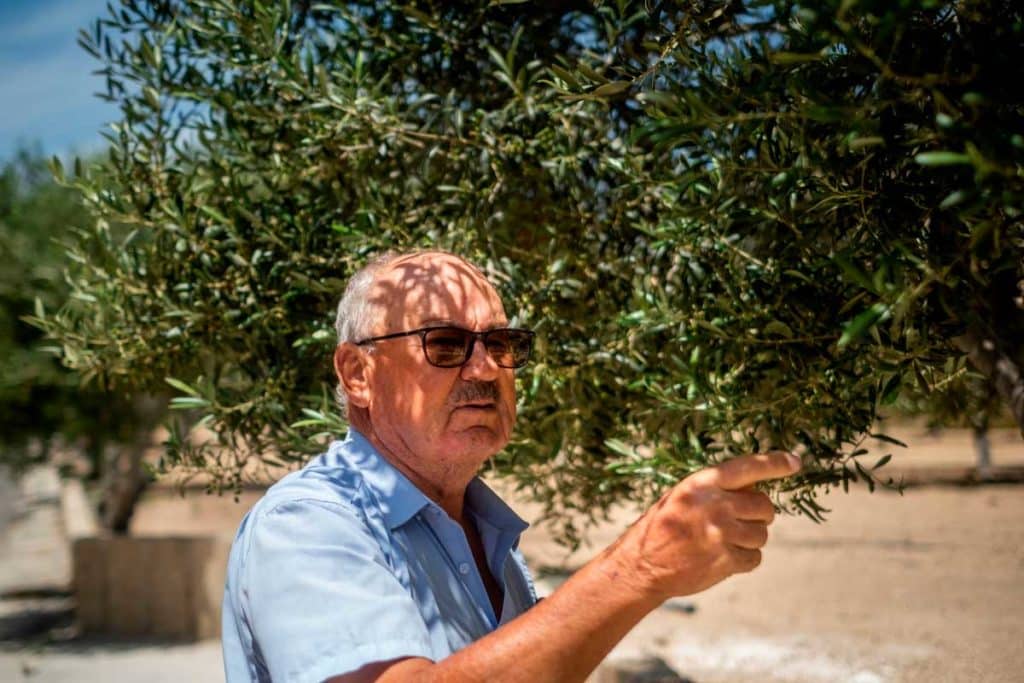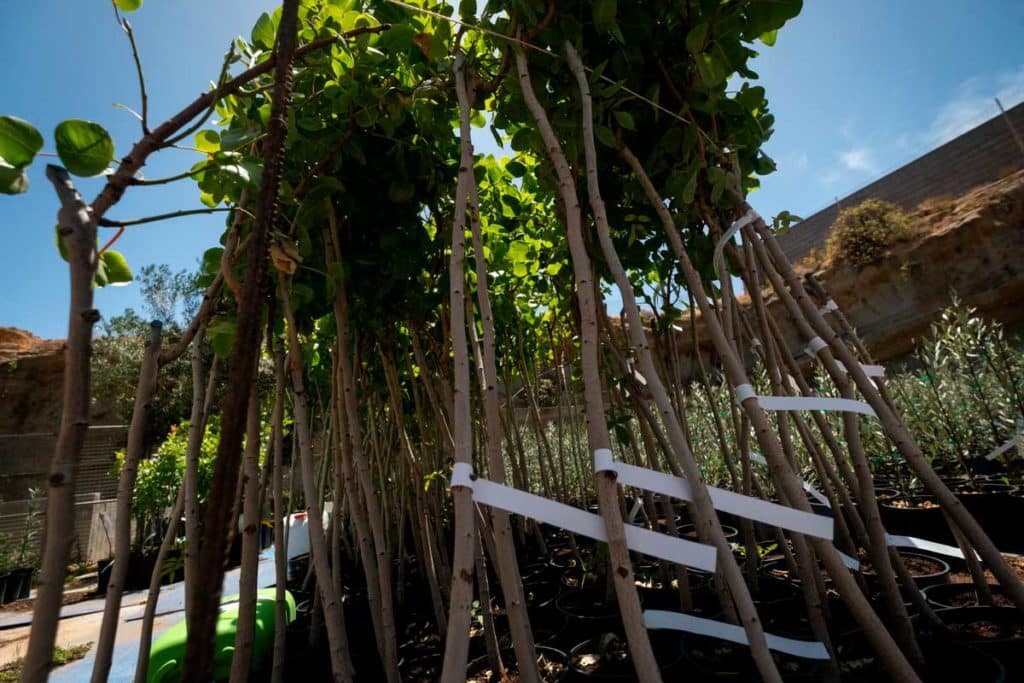Manuel Marrero Reyes (1947), recently named Arico’s Favorite Son, continues at 76 years of age to carefully care for the hundred hectares that belong to the Summits of Abona Cooperative, of which he has been its president since it was officially founded in 1991, today reaching 720 members and extending its business beyond wine, with olive groves that produce the award-winning Olivoteide oil. Now in Abona Summits, on a 75,000 square meter plot, experiment with planting pistachios. In three years they will already be on the market. “Here, in Arico, even if it rains for two or three days, as it happened in October, the land is very generous,” says Manuel Marrero, who maintains a crusade so that the waters of the ravines are dammed up, if possible resuming the forgotten great dam of El Río.
The Cumbres de Abona Cooperative Society began its journey in 1989 in a room in La Cisnera as a result of the gradual deterioration suffered by the wine sector in the southern area of the Island, establishing itself as one of the first wineries in the Abona region, after despite the obstacles placed on it by the Administration and, specifically, from the northern zone. “Thanks to the drive of Ricardo Melchior, when he became president of the Cabildo, we were able to start the cooperative, and Antonio Castro Cordobez, from the Government, subsidized us 50% of the 2,800,000 pesetas that a piece of land of 75,000 cost us. square meters, with European funds”, recalls Marrero Reyes. When the Cabildo launched the Insular Vitivinícola Plan for the construction of five regional wineries, at the end of the 80s, it did not include any in Arico. And this despite the fact that this is “the largest agricultural municipality on the Island.”
“They forced us to send the grapes to San Miguel or Güímar”, details the president of the regional winery, explaining that, finally, the regional winery was built thanks to the efforts of a group of viticulturists who, “in barely a month, already there were more than 400,” says Marrero. Cumbres de Abona began in the 90s with the viticultural exploitation, with the introduction of noble varietals through an authorized nursery, under the Abona Denomination of Origin.
The large winery is located very close to Villa de Arico, where they have modern and extensive facilities for making wines and, since 2005, oils. Its main brands in the market -almost all in the Canary Islands, but they also export to the Peninsula and Germany- are Cumbres de Abona, Flor de Chasna -the fruity one is the one that sells the most- and Testament. The latter is made with the queen variety of the Canary Islands, Malvasia, which, Manuel Marrero recalls, is precisely “in Punta de Rasca, where they now want to expand the natural area, which is damaging us, having the best Malvasia there in Canary Islands”.
The 720 viticulturists members of Cumbres de Abona are owners of the vineyards, which are located in the different municipalities of the Abona region. They grow all the grape varieties, from which any of their expressive wines are obtained: listán negro and blanco, Malvasía aromatica, baboso negro, tintilla, vijariego negro, gual, merlot, syrah and, now, tempranillo .
Cumbres de Abona has expanded its activity with the exploitation of the olive grove. The result of this is the production of an extra virgin olive oil, Oleoteide. In a short time, this product has achieved great recognition and several prizes in competitions, including international ones, surpassing the traditional extra virgin olive oils from Mediterranean countries.
Despite this assessment, Marrero regrets that “while the vineyards are subsidized with more than 2,000 euros per hectare, the olive grove is only subsidized with 500 euros, when each olive tree needs a minimum of 25 square meters.”
“The olive tree -he comments-, like the almond tree, does not need a lot of water. If you water it, it gives you more, but if you don’t, it can continue to live for two or three years.” The famous Olivoteide oil is made in the first mill in Tenerife, with olive varieties such as barbuzano, arbequina, arbosana, koroneiki, picual and hojiblanca.
“Any variety thrives here and the Canary Islands are in a position to be self-sufficient in oil,” adds Manuel Marrero. “In Arico you can buy land for two or three euros per square meter, very fertile land”, so much so that they have even experimented with aloe vera and pitaya, and now pistachio is being introduced. The next adventure that Manuel Marrero, tireless and innovative at 76 years old, has devised.



















